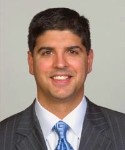
Neville M. Bilimoria
With all the regulatory changes facing nursing homes these days, it is no wonder most are behind in the world of compliance. It seems nursing homes are constantly berated with new regulations and more issues to deal with on a daily basis. The recent article in the May 22, 2017 edition of Modern Healthcare was, therefore, not a surprise: “Regulation: Nursing homes and hospice providers face looming emergency preparedness deadline.”
The article discusses the real November 15, 2017 deadline for nursing homes to comply with the emergency preparedness regulations promulgated by the Centers for Medicare & Medicaid Services (“CMS”) in September 2016. The article further discusses how most facilities are not close to complying by the November 15, 2017 deadline. The problem is that while nursing homes have historically had some emergency preparedness policies and procedures, the new CMS rules impose more robust policies, procedures, and mechanisms to be in place prior to November 15, 2017. That would require nursing homes to partner with local hospitals, police and fire departments to make sure their preparedness plans are up to date, robust, and systematically applied. The rules mandate, among other things, back-up generator contingencies, cybersecurity attack back up plans, and widespread training on a myriad of emergency preparedness policies and procedures that need to be developed by nursing homes. The rules even require disaster drills to be conducted by the nursing home in conjunction with local emergency response agencies.
Continue reading “Nursing Homes Ready For Emergency Preparedness Rules?”
